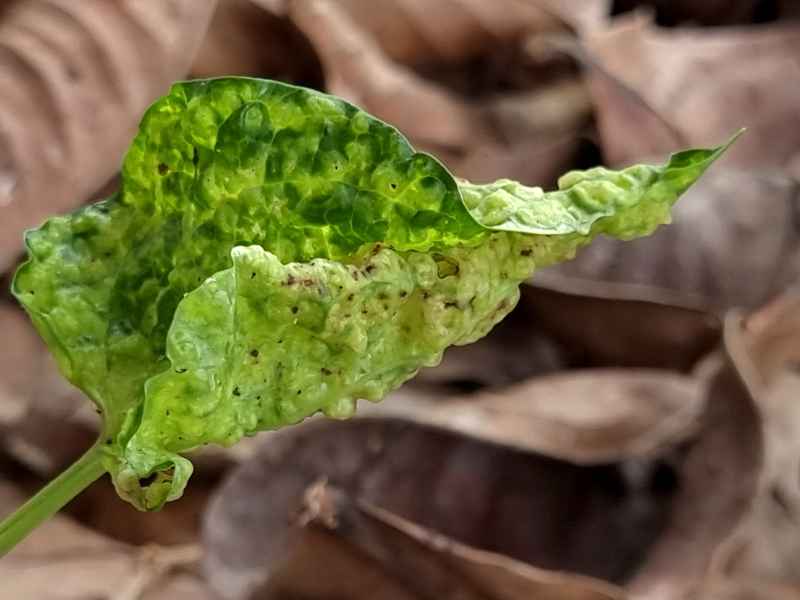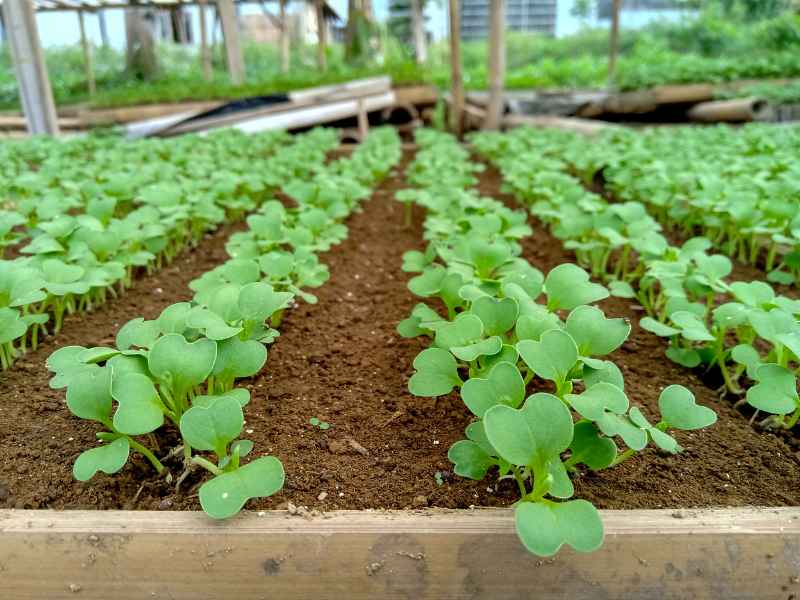BREEDING FOR ABIOTIC STRESS
Breeding for abiotic stress tolerance in plants is a critical area of research and development aimed at addressing the challenges posed by environmental stresses such as drought, salinity, extreme temperatures, and nutrient deficiencies. As the global climate changes and temperatures rise, and arable land becomes increasingly scarce, the need for crops that can thrive under adverse environmental conditions is more urgent than ever. Breeding programs focused on enhancing abiotic stress tolerance aim to develop crop varieties with improved resilience, productivity, and sustainability, ultimately contributing to global food security and agricultural sustainability.

What Is Abiotic Stress?
Abiotic stresses in plants can manifest in different forms, each with its unique characteristics and effects on plants. Here are some examples of abiotic stress:
Drought Stress: Drought stress occurs when plants experience insufficient water availability in the soil, leading to water deficit conditions. Drought stress can impair plant water uptake, disrupt cellular functions, and inhibit photosynthesis, ultimately resulting in reduced growth, yield losses, and crop failure.
Salinity Stress: Salinity stress arises from high levels of salt in the soil, which can disrupt ion balance, osmotic potential, and nutrient uptake in plants. Excess salt accumulation in plant tissues can lead to ion toxicity, osmotic stress, and cellular damage, limiting plant growth and productivity.
Temperature Stress: Temperature stress encompasses both heat stress and cold stress which can adversely affect plant physiology and metabolism. Heat stress can accelerate physiological processes, impair protein stability, and induce oxidative damage, while cold stress can disrupt membrane integrity, impair enzyme activity, and cause cellular dehydration.
Nutrient Stress: Nutrient stress arises from deficiencies or imbalances in essential nutrients such as nitrogen, phosphorus, potassium, and micronutrients. Nutrient deficiencies can impair plant growth, development, and metabolism, leading to symptoms such as chlorosis, stunted growth, and reduced yield potential.
What are the goals of breeding for abiotic stress tolerance?
Breeding programs focused on abiotic stress tolerance aim to achieve several key objectives:
Improved Stress Tolerance: Develop crop varieties with enhanced tolerance to specific abiotic stresses, allowing them to maintain growth, yield, and productivity under adverse environmental conditions.
Yield Stability: Breed crops with stable yields across diverse environments, including those prone to abiotic stresses. Varieties with broad adaptability and resilience can help farmers mitigate the risks associated with unpredictable weather patterns and climate variability.
Resource Use Efficiency: Enhance the efficiency of resource use, including water, nutrients, and energy, in crop production systems. Abiotic stress-tolerant crops can utilize resources more efficiently, reducing inputs and environmental impacts while maximizing yields.
Sustainable Agriculture: Promote sustainable agricultural practices by reducing the reliance on chemical inputs, conserving natural resources, and minimizing environmental degradation associated with conventional farming methods.

What are some breeding approaches for abiotic stress tolerance?
Breeding for abiotic stress tolerance involves a combination of traditional and modern breeding approaches, here are some of the key strategies include:
Conventional Breeding: Traditional breeding methods involve crossing and selection of plants with desirable traits, followed by successive generations of breeding to enhance stress tolerance. This approach relies on natural genetic variation within crop species and can be time-consuming but has been successful in developing stress-tolerant varieties.
Marker-Assisted Selection: MAS involves the use of molecular markers linked to genes or QTLs (quantitative trait loci) associated with abiotic stress tolerance. By selecting plants based on specific genetic markers, breeders can expedite the breeding process and introgress desirable traits into elite germplasm more efficiently.
Genome Editing: Genome editing technologies such as CRISPR/Cas9 enable precise modification of target genes associated with abiotic stress tolerance. By introducing beneficial mutations or altering gene expression, researchers can enhance stress tolerance in crop plants while minimizing unintended changes to the genome.
Genomic Selection: Genomic selection utilizes genome-wide molecular markers and statistical models to predict the breeding value of plants for complex traits such as abiotic stress tolerance. This approach allows breeders to select superior individuals based on their genomic profiles, accelerating genetic.
What are the targeted traits for abiotic stress?
In breeding programs focused on abiotic stress tolerance, several key traits are targeted for improvement:
Water Use Efficiency (WUE): Enhancing the ability of plants to use water efficiently is crucial for coping with drought stress. Breeding for increased WUE involves optimizing stomatal conductance, improving root architecture, and enhancing osmotic adjustment mechanisms.
Salt Tolerance: Developing crops that can tolerate high levels of salt in the soil is essential for cultivation in saline environments. Breeding for salt tolerance involves selecting for traits such as ion homeostasis, ion exclusion, and osmotic adjustment to maintain cellular integrity and function under saline conditions.
Temperature Tolerance: Improving the ability of plants to tolerate extreme temperatures, both cold and heat stress, is critical for ensuring crop productivity in variable climates. Breeding for temperature tolerance involves selecting for traits such as heat shock proteins, antioxidants, and membrane stability to mitigate the effects of thermal stress.
Nutrient Use Efficiency (NUE): Enhancing nutrient uptake and utilization efficiency in plants can improve productivity and resilience under nutrient-limited conditions. Breeding for NUE involves selecting for traits such as root architecture, nutrient transporters, and nutrient storage mechanisms to optimize nutrient acquisition and utilization.
What are the challenges of breeding for abiotic stress?
While significant progress has been made in breeding for abiotic stress tolerance, several challenges remain:
Complexity of Traits: Abiotic stress tolerance is a complex trait controlled by multiple genes and influenced by environmental factors. Understanding the genetic basis of stress tolerance and unraveling the underlying molecular mechanisms remain key challenges in breeding efforts.
Trait Integration: Integrating multiple stress tolerance traits into elite germplasm without compromising other agronomic traits is challenging. Breeders must balance the trade-offs between stress tolerance and other desirable traits such as yield potential, disease resistance, and quality attributes.
Environmental Variability: Abiotic stresses are highly variable across different environments, making it difficult to develop universally adapted varieties. Breeding programs must consider the diverse agroecological conditions and prioritize traits that confer broad adaptability and resilience to stress.
Emerging Stresses: With climate change and global environmental shifts, new abiotic stresses may emerge, posing additional challenges for crop production. Breeding programs must anticipate and respond to these emerging stresses by incorporating adaptive traits and deploying innovative breeding strategies
Case studies and success stories:
Numerous breeding programs worldwide have successfully developed crop varieties with enhanced abiotic stress tolerance. For example:
Drought-Tolerant Maize: Breeding programs in regions prone to drought, such as sub-Saharan Africa, have developed maize varieties with improved drought tolerance traits, including deep root systems, efficient water use, and enhanced stay-green characteristics.
Salt-Tolerant Rice: Rice breeding programs in saline-prone areas, such as coastal regions and inland saline soils, have developed salt-tolerant rice varieties with improved ion homeostasis, osmotic adjustment, and sodium exclusion mechanisms.
Heat-Tolerant Wheat: Wheat breeding efforts in regions experiencing heat stress, such as South Asia, have focused on developing heat-tolerant wheat varieties with enhanced thermotolerance traits, including heat shock proteins, antioxidants, and membrane stability.
How can the PlantArray system help in breeding for abiotic stress?
The PlantArray system offers several ways to aid breeding efforts for abiotic stress tolerance in plants:
High-Throughput Phenotyping: PlantArray allows breeders to simultaneously phenotype large populations of plants under controlled conditions. This high-throughput capability enables rapid screening of genetic materials for traits related to abiotic stress tolerance. Breeders can assess a wide range of parameters across multiple genotypes, expediting the identification of promising candidates for further breeding efforts.
Real-Time Monitoring: The system provides continuous, real-time monitoring of physiological parameters such as water uptake, transpiration rates, and photosynthetic activity. This allows breeders to observe how plants respond to abiotic stressors in real-time, gaining insights into stress tolerance mechanisms and identifying key traits associated with resilience.
Precision Measurement: PlantArray incorporates advanced sensors and precision weighing technology, ensuring accurate measurement of plant growth and physiological responses. Breeders can quantify subtle differences in plant performance under stress conditions, facilitating the selection of genotypes with superior stress tolerance traits.
Data Analysis Tools: The system's software provides tools for automated data analysis, simplifying the process of extracting meaningful insights from complex datasets. Breeders can analyze phenotypic data efficiently, identify correlations between traits, and prioritize breeding lines with desired stress tolerance attributes.
can the PlantArray be combined with other phenotyping methods for Breeding for abiotic stress tolerance?
Yes, the PlantArray system can indeed be combined with other plant phenotyping methods to enhance breeding efforts for abiotic stress tolerance in plants. By integrating multiple phenotyping techniques, breeders can obtain a more comprehensive understanding of plant responses to stress and identify a broader range of stress tolerance traits.
Remote sensing technologies offer large-scale monitoring of stress impacts across different environments. Physiological measurements complement PlantArray data by assessing gas exchange, photosynthetic efficiency, and water status. Molecular and genomic tools aid in identifying candidate genes and genetic markers associated with stress tolerance, facilitating marker-assisted selection and genomic selection strategies. Field-based phenotyping validates PlantArray data under natural conditions. Multi-platform integration combines the strengths of various phenotyping platforms, accelerating the development of stress-tolerant crop varieties tailored to meet the challenges of a changing climate. By leveraging diverse phenotypic datasets and integrating multi-platform data, breeders can ensure food security for future generations.
